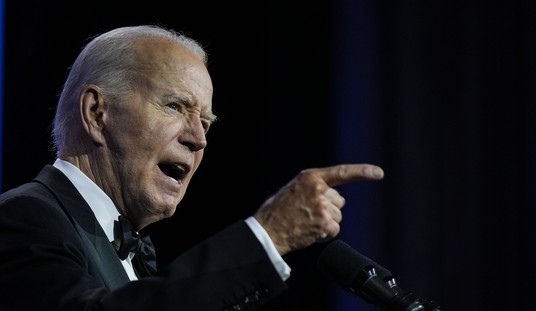When the war in Afghanistan makes it on the front pages of the British papers and the top of the TV bulletins, it’s a sure sign that things aren’t going well. And right now, Afghanistan is very big news indeed.
July was the worst month for British forces in the country since the conflict began, with 22 soldiers killed at the time of writing. The U.S. also suffered its worst month of the war, losing 38 troops; however the U.S. has roughly six times as many troops in the country, and taking into account the relative populations of the two countries, the British casualty rate is comparable to that which the U.S. was suffering during the worst months of the Iraq conflict.
Military chiefs have warned that further sacrifices will be required as British forces, along with U.S. and other allies, try to drive back Taliban insurgents ahead of the presidential election later this month. But while the British public has yet to turn against the war in significant numbers, there’s little evidence that Gordon Brown’s government understands what’s required if the country is to be stabilized to the extent that NATO and U.S. forces can begin to contemplate a withdrawal.
With the death toll mounting in Afghanistan, military chiefs have opened a second front against their political masters back home. A steady stream of senior soldiers, both serving and retired, have attacked the government for under-resourcing the war effort. The biggest complaint is the lack of helicopters available to troops, which commanders say is responsible for at least some of the deaths.
Brown has insisted that the army has enough helicopters, but his assurances were somewhat undermined when the head of the armed forces, General Sir Richard Dannatt, had to travel in an American helicopter to visit British troops in Helmand province. Further evidence of the lack of direction in the government came when Lord Malloch-Brown, the foreign office minister, admitted in an interview that there was “definitely” a shortage of helicopters, before being forced to “clarify” his remarks under pressure from Brown’s staff.
Brown has attempted to silence legitimate criticism by accusing political opponents of undermining the troops, and one senior Labour figure went even further, accusing military chiefs of giving “succor to the enemy.” It also emerged that Labour ministers are plotting to smear General Dannatt if he continues his criticisms of the government after stepping down from his post.
The prime minister’s claim of doing everything necessary to support the troops was further dented recently when the government launched a legal battle to claw back compensation paid to two wounded soldiers. Brown never liked funding wars when he was Tony Blair’s chancellor of the exchequer, and he isn’t any more keen on it now — a billion more spent on the armed forces is a billion less to pour into the bottomless pit of public services.
The extent to which the government is failing its armed forces has become apparent at a time when public backing for the troops has never been higher. Thousands of people have been lining the streets of Wootton Bassett, a small market town in the west of England, to pay their respects to those killed in Afghanistan who are repatriated to a military airbase close by. The ceremonies have become depressingly regular affairs in recent weeks.
Two recent polls give contradictory pictures of the public mood, with one showing support for the war growing and another showing a majority in favor of an immediate withdrawal. Sympathy for dead soldiers, and support for their comrades still in the field, doesn’t necessarily equate to support for the war. And if the casualties continue to mount in the absence of a clear exit strategy, then public pressure to pull the troops out is likely to grow.
However well equipped British forces are, the simple truth is that it’s hard for the government of a modern western democracy to maintain public support for a war when the aims can’t easily be defined and the public doesn’t feel under imminent threat. It’s hard to explain to a public that has an attention span attuned to TV talent contests and reality shows that we’re in this for the long haul. It doesn’t help that much of the information the public gets is filtered and spun by a media whose members are either sympathetic to the mission but professionally cynical about government or fully paid-up lefties who have an aversion to the use of force in general and believe the West brings any terror attacks it suffers upon itself.
It’s true that stabilizing Afghanistan — and even outright victory — will not necessarily make the UK safer; home-grown terrorists are arguably a bigger threat these days than attacks planned in faraway countries. But if Britain and her allies were not in Afghanistan, al-Qaeda would still be using it as a base — both for attacks against the West and in its efforts to destabilize neighboring Pakistan — rather than be holed up in the mountains of Pakistan’s tribal areas being picked off by U.S. predators. Allowing Afghanistan to revert to being a failed state is not an option.
As Bing West makes clear in an op-ed piece for the Wall Street Journal, progress is being made in Afghanistan. Despite the heavy losses, British commanders are hailing Operation Panther’s Claw — a massive push to drive the Taliban out of the Helmand valley around the provincial capital of Lashkar Gah — as a success; and it’s hoped that the arrival of the 10,000-strong 2nd Marine Expeditionary Brigade in Helmand will enable British forces to hold ground they take from the Taliban, rather than ceding it back to them. Just as in Iraq, the surge of forces in Afghanistan has led to a spike in casualties. But the Iraq surge turned the tide of that conflict, and if the Afghanistan surge has similar results then the losses, bad as they are, will be considered worthwhile.
Just as in Iraq, if long-term stability is to be brought to Afghanistan alliances will likely have to be made with the less-fanatical local elements of the insurgency. British Foreign Secretary David Miliband raised the prospect of “talks with the Taliban” recently. But any talks will have to be part of a wider effort to expand development efforts, combat corruption, and tackle the drugs trade. And we should only talk from a position of strength, and that means persuading the insurgents that they can’t win, which in turn means killing as many of the hardcore fighters and their leadership as necessary. And in order to do that British forces will need more helicopters, more MRAP (Mine-Resistant, Ambush-Protected) vehicles, and almost certainly more troops.
For all his flaws, Brown is not some scheming monster playing politics with soldiers’ lives. He understands why Britain needs to be in Afghanistan and the consequences of a precipitous retreat. But by no stretch of the imagination is he a wartime leader; rather he’s a politician who finds himself in office during a time of war. He tried to run that war on the cheap, and he got away with it while the death toll was relatively low. But recent developments have exposed the futility of that strategy and the lack of focus at the heart of his administration.
The British public have shown that they’re solidly behind their soldiers, whether or not they agree with the mission. It’s time for Brown and his government to show the same commitment.









Join the conversation as a VIP Member